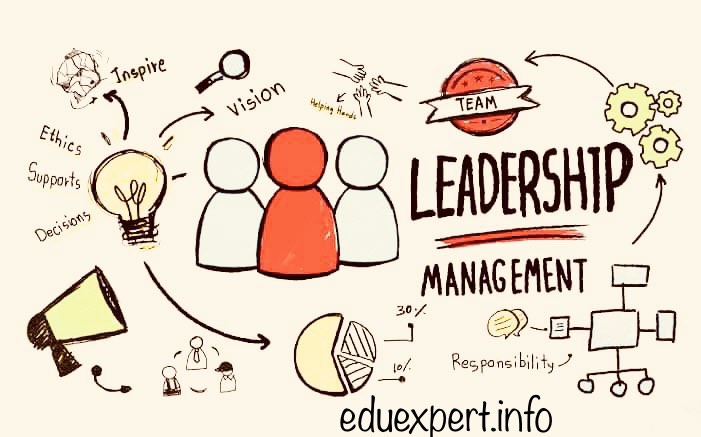
It’s no secret that becoming successful in the world of teaching may be challenging. It’s easy to become bogged down and lose focus in the midst of all the changes and challenges that come with the job. Herein lies the significance of leadership power. Teachers who have a clear idea of what success looks like are more likely to succeed in reaching it. All effective educators share a few characteristics with one another. First of all, they know exactly what they hope their pupils will accomplish. They put forth great effort to assist their pupils in acquiring the skills they require since they are aware of what those students need to succeed in the real world. Second, proficient communicators make great educators. They have the ability to inspire their students to learn and succeed by clearly communicating their vision to them. Finally, ardent educators have a strong sense of passion for what they do. Their passion for their work is evident in their commitment to both their career and their students. If you work in education, take a moment to consider what success means to you personally. How can you explain your vision to them more effectively? And lastly, how can you demonstrate your love for what you do?
The Power of Leadership in Education: Shape a Vision of Success for the Educator’s.
In order to set the tone and direction for their students’ achievement, educators must exercise strong leadership. Teachers can motivate pupils to realize their greatest potential by defining success clearly and exhibiting a strong commitment to achieving it. A leader in education who can effectively communicate a common goal and inspire others to work toward it is a successful leader. A successful vision should inspire and challenge students while remaining grounded in reality and attainable. It ought to be predicated on a thorough comprehension of pupils’ abilities and requirements for success. Being a leader involves more than simply having a vision; it also involves leading by example An effective educator is one who sets an example for others to follow, exhibiting the same perseverance and commitment to achievement that they demand of their pupils. They serve as role models for pupils, demonstrating to them what is achievable with dedication and hard work. A good educational leader is also able to forge bonds with people and collaborate with them. They can establish solid, wholesome bonds with kids, parents, coworkers, and the larger community because they understand how important it is to cooperate in order to achieve a common objective. It is obvious that leadership has great influence in education; by establishing a successful vision and setting a positive example, teachers can motivate pupils to realize their greatest potential.

It’s imperative that educators know exactly what they hope to get out of it.
In the field of education, leadership is about setting clear goals and motivating people to support you in achieving them. A clear sense of purpose is crucial for educators, and this vision should serve as a source of inspiration and motivation. For any leader, but especially for educators, having a clear vision is crucial. This is due to the special power that teachers possess—the potential to mold pupils’ futures. Instructors may encourage their students to achieve great things by having a clear vision for what they want to accomplish. It is critical that educators know exactly what they hope to accomplish Teachers must be continuously investigating new educational ideas and learning about new advancements in their profession. They ought to be thinking back on their own work and seeking opportunities for development. While having a clear idea of what you want to accomplish is important, it is only the first step. Motivating people to support you in realizing your goal is the next stage. This is where being a leader is important. People can be motivated to accomplish great things by leaders. There is more to leadership than just giving orders to others. It’s about motivating them to give it their all. A leader must be able to inspire and motivate others by communicating their vision. They must also be able to help and mentor others while they work toward their objectives. A distinct vision and the capacity to motivate people to support it are prerequisites for effective leadership in the educational field. It is crucial for educators to know exactly what they hope to accomplish and to be able to articulate this goal in a way that inspires and encourages others.

A clear vision and the ability to inspire others to realize it are hallmarks of effective educational leaders.
A leader in education who can inspire people to realize their vision through communication is an effective one. A leader in the field of education needs to be able to clearly state their objectives and motivate their group to pursue them. A leader in education needs to be a skilled communicator and have a thorough understanding of what inspires their team in order to do this. A leader in the field of education needs to be able to express their future goals with clarity. They must be able to motivate their team to aim for success by illustrating what it looks like. A leader in education needs to be able to express to their team their love and commitment for what they do. They need to be able to give their team members a sense of pride and a sense that they belong to something greater than themselves. An educator’s leader needs to know what inspires their group as well. They must be able to pinpoint the motivation for their team’s success and what makes them tick. An effective educator must be able to identify each member of the team’s unique motivators and leverage them to motivate and inspire the group as a whole. A leader in education who can inspire people to realize their vision through communication is an effective one. A leader in the field of education needs to be able to clearly state their objectives and motivate their group to pursue them.
Education leaders have the capacity to establish a supportive learning environment
Education leaders have the capacity to establish a supportive learning environment. This encouraging atmosphere for learning can help students succeed. Education leaders must be able to clearly communicate their vision for success in order to establish this kind of supportive learning environment. All parties involved should be able to support and believe in this goal. Education leaders must also be able to put this vision into action by putting in place procedures and policies that support it. Ultimately, educational leaders must be able to regularly evaluate whether the goal is being realized and make the required corrections. With these skills, educational leaders may establish a productive learning atmosphere that molds an educator’s dream of success.
A superb educator is constantly seeking methods to enhance the learning experience for their students. They always look for ways to maximize their resources and don’t hesitate to attempt new things. They recognize that every student is distinct and has particular demands of their own. A successful leader never stops searching for new methods to provide each student with the resources they need to succeed and to individualize their training. Effective and efficient resource management is another quality of a great educator. They are aware that resources are limited and should be utilized as efficiently as possible in schools of different sizes. They are constantly searching for methods to save costs and ensure quality.
A strong leader is able to maximize the performance of their team members and ensure that they are all working toward the same objective.
One more quality of an extraordinary instructive pioneer is powerful correspondence. They comprehend that great correspondence is fundamental to establishing a positive learning climate. They verify that everybody is pursuing similar objectives and knows about them. They additionally guarantee that talking is agreeable for the two players. An able pioneer can construct connections and develop an environment of trust. Someone who leads a great life can inspire others. They know about the worth of instruction and the extraordinary force of learning. They want to make an impact on the world and are energetic about what they do. They urge others to continuously seek after significance and to turn into the best version of themselves.
The ability to give students direction and guidance is perhaps the most crucial quality of educational leaders.
Educational leaders frequently take on mentoring duties, supporting students through difficulties, and providing advice on academic and professional choices. They may also develop official advising programs to offer students the assistance and direction they require. Leaders are committed to continuously improving the educational experience. They collect student input, assess the performance of programs and services, and make educated decisions to improve the overall learning environment.
To summarize, educational leaders’ capacity to give direction and guidance is critical for generating a pleasant and fulfilling learning experience. It extends beyond academic education to include mentorship, personal growth, and the development of skills that will help students succeed in their future undertakings.
S.M Tareq
Educational Consultant and Leadership Trainer
Masters of Education (IER, DU)




